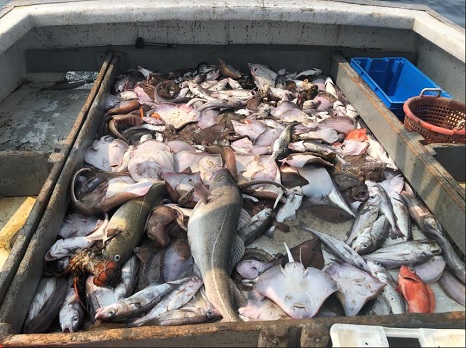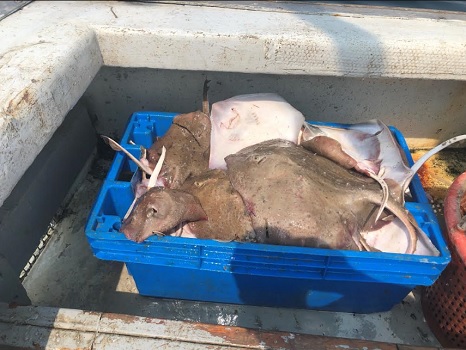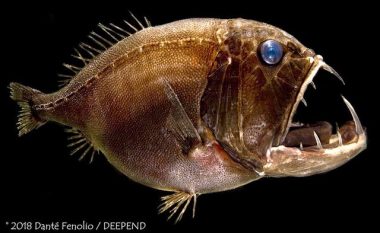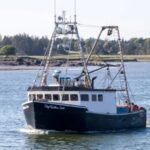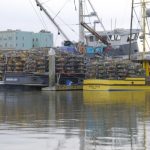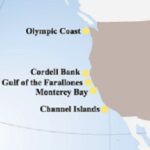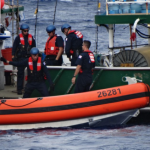Tag Archives: Oceana
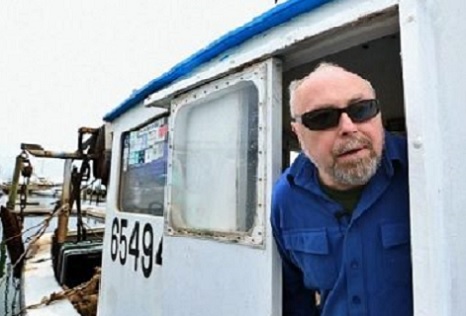
UPDATED: The hidden cost of fishery monitoring
Recently my crewman came into the wheelhouse with a complaint. I am a commercial fisherman and we were on our third consecutive day of carrying at-sea monitors, which we are required to do in 2019 on at least 31% of trips. This is like having your own state policeman ride with you to work to make sure you do not exceed the speed limit. They watch you to make sure you do not throw over any fish that are part of your quota. Because the government wants their monies worth, they have them weigh everything you bring on board. By David Goethel >click to read< 18:41 Dave sent these photo’s which were not included in the article.
100% fishing monitoring is unnecessary, David Goethel
August 13, 2019
I would like to correct some misconceptions and rebut some of the statements made by Ms. Johanna Thomas in her Aug. 2, 2019 opinion, Monitoring will help improve New England’s fisheries. >click to read< Ms. Thomas sites the West coast Groundfish fleet as a success story. That is not the case as told by the fishermen on the West coast. She also fails to mention that 50% of the fleet was bought out in a $60 million-plus dollar buy out prior to the implementation of catch shares. This alone should have rebuilt stocks. >click to read< 21:28
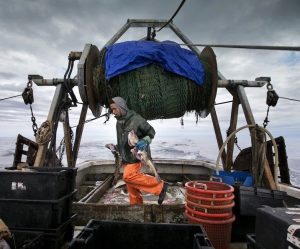
DC Circuit Sinks Challenge to Fishing Bycatch Rule
The D.C. Circuit on Friday upheld the government’s method of counting fish and other sea life that are unintentionally swept up in commercial fishing nets. The NMFS changed its method for counting bycatch in 2015,,, The 2015 change puts trained reporters, typically biologists, on a sample of fishing boats to count bycatch. Their numbers are then extrapolated across entire fleets, giving the government an estimate to work with. Conservation group Oceana challenged the new rule,,, >click to read<19:25
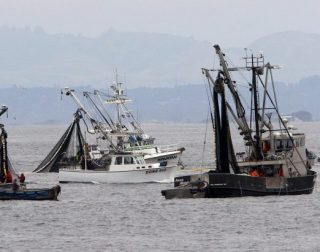
Sardine fishery likely will be closed this season
Sardine fishermen in Monterey Bay are facing a fifth straight year of restrictions on the amount they will be permitted to catch, creating financial hardships for the commercial industry.,,, Diane Pleschner-Steele, executive director of the California Wetfish Producers Association, was not available to comment Wednesday, but she told the Monterey Herald following the 2018 assessment that “fishermen are seeing more sardines, not less, especially in nearshore waters.” She believes the methods in which the Marine Fisheries collect data is flawed. Not only does Pleschner-Steele reject the notion that overfishing played a role in the decline of the sardine stock, she calls the stock’s collapse “fake news.” >click to read<20:16
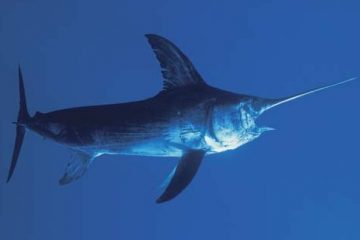
A California battle over swordfish — and gill nets
Conservationists are pushing a $1 million effort this summer to change the way swordfish are caught off the California coast by phasing out the use of gill nets. They are the mile-long nylon nets used to catch swordfish but that also ensnare other species, causing conservation organizations to seek an end to their use. Commercial fishermen can use gill nets now, with a drift gill net shark and swordfish permit from the Department of Fish and Wildlife. But a new California law will officially ban gill nets as of January 2023.,,, Organizations representing commercial fishermen opposed SB 1017 by state Sen. Ben Allen (D-Santa Monica), the bill that became the new law phasing out the use of gill nets. >click to read<17:08
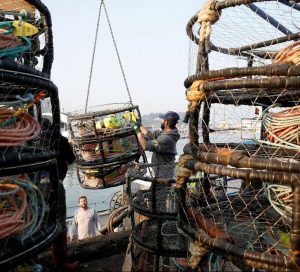
Crab fishermen and environmentalists square off over whale entanglements
The issue has pitted two local interest groups against each other: Those who depend on the $68 million California Dungeness crab fishery for their livelihood, and those who advocate shutting down areas to crabbing to protect humpback whales and other endangered species. Caught in between are everyday shoppers who love having Dungeness crab on their tables, but probably wouldn’t want marine mammals hurt in the process. “I’m frankly very scared of what the upcoming season could mean for whales,” said Kristen Monsell, senior attorney at the Center for Biological Diversity, an Oakland environmental group that sued the state over the issue last year. The case is due to go before a judge in February. >click to read<13:23

Oceana’s Challenge to Bycatch Rule Looks Likely to Sink
The D.C. Circuit appeared primed Monday to uphold how the government counts bycatch — a term for various sea life unintentionally swept up in commercial fishing. Led by the nonprofit Oceana, the challengers take issue specifically with procedures by which the National Marine Fisheries Service monitors for bycatch with less intensity than Congress allowed it. The agency came up with a new procedure to cover the Greater Atlantic region three years ago after a plan from 2008 was found to have improperly given the agency “complete discretion” to depart from procedure. >click to read<09:05
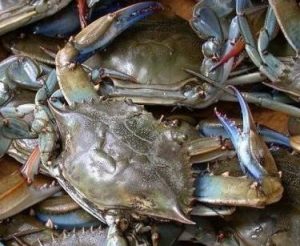
Company accused of diluting Chesapeake blue crab meat with imported crab
Few things say local like the Chesapeake blue crab. It has scuttled its way into Maryland’s tourism slogan and is part of the region’s signature dish, proudly touted on menus and in markets as a taste of the Bay in an era when “eat local” has become the mantra of foodies. But a few years ago, a tipster reached out to authorities with an unsavory allegation: A major Virginia seafood supplier was selling packages of premium Chesapeake blue crab meat cut with cheaper foreign crab. It wasn’t even the same species. In an unusual probe, federal agents fanned out to markets across Virginia, Delaware and North Carolina, scooping up crab meat from Casey’s Seafood and sending it out for the type of DNA analysis more common in rape and murder cases. >click to read<11:23

Booker, Carper, Nelson Introduce Bicameral Bill to Establish Grant Program for Right Whale Conservation
U.S. Senators Cory Booker (D-NJ), Tom Carper (D-DE), and Bill Nelson (D-FL), along with Senators Bob Menendez (D-NJ) and Kirsten Gillibrand (D-NY) have introduced a bill to protect the highly endangered North Atlantic right whale. Booker is a member of the Senate’s Environment and Public Works Committee, Carper is the top Democrat on the Environment and Public Works Committee, and Nelson is the top Democrat on the Senate’s Commerce Committee, which oversees ocean policy. Rep. Seth Moulton (D-MA), along with Reps. Raul Grijalva (D-AZ), Jared Huffman (D-CA), and Bill Keating (D-MA), has introduced a companion measure in the House of Representatives. >click to read<18:46
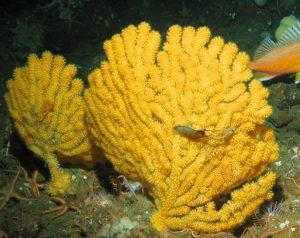
New fishery rules could protect deep sea corals in California
The Pacific Fishery Management Council will decide Monday what happens to the underwater areas as part of an update to essential fish habitat for West Coast groundfish. “The Pacific Fishery Management Council will be making a decision on changing the areas that are opened or closed to West Coast groundfish bottom trawling,” said Kerry Griffin, a staff officer to the council, which regulates fisheries in federal waters from the Mexican border to the Canadian border, from three miles to 200 miles off shore. The proposal, scheduled for a vote Monday, >click to read<20:31
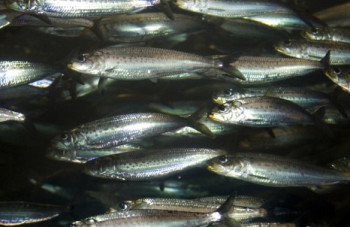
California Wetfish Producers Association: Sardine Fishery Collapse Latest Fake News
This Sunday, April 8, the Pacific Fishery Management Council is meeting in Portland to debate the fate of the West Coast sardine fishery, after the 2018 sardine stock assessment estimated the biomass has declined by 97 percent since 2006. According to the California Wetfish Producers Association, the only problem with that finding is it belies reality. “Fishermen are seeing more sardines, not less, especially in nearshore waters. And they’ve been seeing this population spike for several years now,” said Diane Pleschner-Steele, executive director of the California Wetfish Producers Association (CWPA). “This stock assessment was an update that was not allowed to include any new methods and was based primarily on a single acoustic survey,,, >click to read<21:15

Proposed Magnuson Stevens changes are reasonable – Support HR-200
“Things bad begun make strong themselves by ill” Macbeth,Act III, Scene II I am wondering how much commercial fishermen know about acting? At a guess I’d say probably as much, or as little, as most actors know about commercial fishing, even award winning ones. This thought arose following the recent appearance in these pages of an opinion piece>click to read Rep Keating, defend the Magnuson Act< on fishery management by a member of the acting profession in an attempt to wield political influence. The thespian in question is also an Ocean board member, a well funded environmental group antithetical to America’s oldest industry. By Don Cuddy, >click to read< 19:35
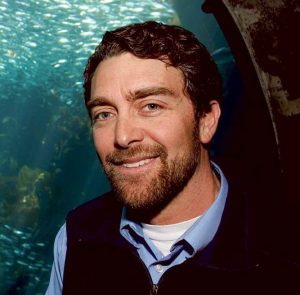
As the Pacific sardine population keeps dropping, the feds come under scrutiny
On April 8, the Pacific Fishery Management Council – a body of appointed officials that regulates fisheries off the West Coast – will be presented with the draft assessment of the sardine population from roughly southern California to Canada. The news it brings is neither good for fishermen nor the local marine ecosystem: The estimated number of sardines in July 2018 – which dictates policy for the 2018-19 fishing year – is 52,065 metric tons, an approximately 97-percent drop from 2006, the most recent peak. What is in dispute: the accuracy of the population assessment, and how we got here.>click to read<15:30

D.B. Pleschner: Is court the right place to determine ‘best available science’?
A U.S. District Court judge recently ruled that the federal government’s catch limit for California’s central stock of anchovy — currently 25,000 metric tons — is far too high. But instead of weighing all the facts, the judge ignored them, shunned the established precedent of deference to federal agencies’ scientific determinations and instead endorsed the flawed arguments of the advocacy group Oceana. So what happened? >click to read< 21:55
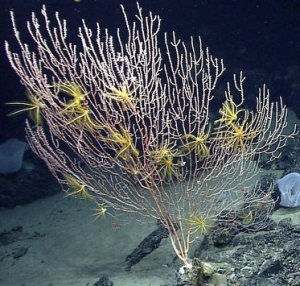
Feds vote to protect more corals in Atlantic Ocean
Federal fishing regulators on Tuesday approved a compromise they said would expand the amount of coral habitat preserved in the Atlantic Ocean while also protecting fishing interests. The New England Fishery Management Council voted on coral protections in an area south of Georges Bank, which is one of the most important commercial fishing areas in the Northeast. The decision came about seven months after the council approved protections in another key New England fishing area, the Gulf of Maine, in June. >click here to read< 17:50 

THE FORAGE FISH FARCE
December 14, 2012 — The Providence Journal’s “PolitiFact” unit investigated claims made by Pew Environment Group in advertisements they ran in several newspapers asking east coast governors to support their demand for a 50% cut in the menhaden harvest. Pew justified this demand saying “… in recent years, menhaden numbers along our coast have plummeted by 90 percent.” The newspaper found the claim to be “Mostly False”. The Providence Journal Lenfest is a Marketing/PR/Lobbying arm of Pew Charitable Trusts, Pew Environmental Group. They (Pew, Lenfest, Oceana, EDF, etc.) are presently working on eliminating the East Coast Menhaden fishery (aka Bunker, Pogies) after going after West Coast sardines recently. click here to read the story 11:38
Federal bill that could eliminate shark fin sales puts pressure on N.C. shark fishermen
 The sale of shark fins may soon become illegal for coastal fisherman across the country. Legislation has been introduced to the House and Senate which would make it illegal to possess, buy, sell, or transport shark fins or any product containing shark fins. Local fishermen make a portion of their income based off of the sale of shark fins and shark meat. Some perceive this aspect of their business to be at risk because of the potential regulation. North Carolina congressmen David Rouzer, Tedd Budd, David Price and Congresswoman Alma Adams all cosponsor the Shark Fin Sales Elimination Act of 2017. The bills, S.793 and H.R.1456 are opposed by Congressman Walter Jones, North Carolina’s Third District representative. click here to read the story 07:53
The sale of shark fins may soon become illegal for coastal fisherman across the country. Legislation has been introduced to the House and Senate which would make it illegal to possess, buy, sell, or transport shark fins or any product containing shark fins. Local fishermen make a portion of their income based off of the sale of shark fins and shark meat. Some perceive this aspect of their business to be at risk because of the potential regulation. North Carolina congressmen David Rouzer, Tedd Budd, David Price and Congresswoman Alma Adams all cosponsor the Shark Fin Sales Elimination Act of 2017. The bills, S.793 and H.R.1456 are opposed by Congressman Walter Jones, North Carolina’s Third District representative. click here to read the story 07:53
Fishing Bycatch Regulations Pass Judge’s Sniff Test
 Federal regulators ducked a conservation-minded challenge Thursday concerning rules meant to minimize fishing bycatch. The National Marine Fisheries Service adopted the rules in question two years ago, with approval from the D.C. Circuit. Though the rules requires fishing vessels to occasionally have a biologist document the amount of fish caught and discarded, the group Oceana complained in a federal complaint that the infrequency of such observation undermines its efficacy as a serious check on fishing abuses. U.S. District Judge Ellen Segal Huvelle sided with the agency Thursday at summary judgment, saying the issue comes down to how the Fisheries Service allocates its funding for NMFS, short for standardized bycatch reporting methodology. click here to read the story 09:02
Federal regulators ducked a conservation-minded challenge Thursday concerning rules meant to minimize fishing bycatch. The National Marine Fisheries Service adopted the rules in question two years ago, with approval from the D.C. Circuit. Though the rules requires fishing vessels to occasionally have a biologist document the amount of fish caught and discarded, the group Oceana complained in a federal complaint that the infrequency of such observation undermines its efficacy as a serious check on fishing abuses. U.S. District Judge Ellen Segal Huvelle sided with the agency Thursday at summary judgment, saying the issue comes down to how the Fisheries Service allocates its funding for NMFS, short for standardized bycatch reporting methodology. click here to read the story 09:02
Lawsuit seeks to protect whales, turtles from California gillnets
 Oceana filed a lawsuit seeking to force U.S. fisheries managers to implement plans for restricting the number of whales and turtles permitted to be inadvertently snared in drift gillnets used for catching swordfish off California’s coast. The proposed rule, endorsed in 2015 by the Pacific Fishery Management Council, would place numerical limits on “bycatch” of whales and other marine creatures, and suspend swordfish gillnet operations if any of the caps are exceeded. The regulation was expected to gain final approval from the National Marine Fisheries Service. But it was withdrawn last month after the Commerce Department agency determined the cost to the commercial fishing industry outweighed conservation benefits, agency spokesman Michael Milstein said on Thursday. click here to read the story 17:11 Geoff Shester, a senior scientist at Oceana, who was “furious” when he found out the National Oceanic and Atmospheric Administration (NOAA) had decided to against adopting the rule. (lmao!) click here to read 17:13
Oceana filed a lawsuit seeking to force U.S. fisheries managers to implement plans for restricting the number of whales and turtles permitted to be inadvertently snared in drift gillnets used for catching swordfish off California’s coast. The proposed rule, endorsed in 2015 by the Pacific Fishery Management Council, would place numerical limits on “bycatch” of whales and other marine creatures, and suspend swordfish gillnet operations if any of the caps are exceeded. The regulation was expected to gain final approval from the National Marine Fisheries Service. But it was withdrawn last month after the Commerce Department agency determined the cost to the commercial fishing industry outweighed conservation benefits, agency spokesman Michael Milstein said on Thursday. click here to read the story 17:11 Geoff Shester, a senior scientist at Oceana, who was “furious” when he found out the National Oceanic and Atmospheric Administration (NOAA) had decided to against adopting the rule. (lmao!) click here to read 17:13
Cause of Action Digs In: Northeast Canyons and Seamounts Designation: Some Stakeholders Are More Equal Than Others
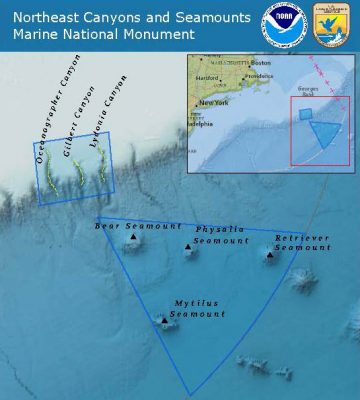 This week we review the procedural history of the Northeast Canyons and Seamounts Marine National Monument (“Atlantic Monument” or “Monument”) designation, which was made by President Obama on September 15, 2016 (“Proclamation”), and show that certain, privileged, non-governmental entities were granted access to detailed information on the forthcoming monument and allowed input into the designation, while other stakeholders—notably those with specific legal authority, such as Regional Fishery Councils—were denied input and access.,,, The following history, derived from the partial responses to CoA Institute’s FOIA requests and other publicly available documents, is illustrative: In March 2015, the Conservation Law Foundation (“CLF”) and Natural Resources Defense Council (“NRDC”),,, click here to read the story. Hang onto your Sou’wester. 17:53
This week we review the procedural history of the Northeast Canyons and Seamounts Marine National Monument (“Atlantic Monument” or “Monument”) designation, which was made by President Obama on September 15, 2016 (“Proclamation”), and show that certain, privileged, non-governmental entities were granted access to detailed information on the forthcoming monument and allowed input into the designation, while other stakeholders—notably those with specific legal authority, such as Regional Fishery Councils—were denied input and access.,,, The following history, derived from the partial responses to CoA Institute’s FOIA requests and other publicly available documents, is illustrative: In March 2015, the Conservation Law Foundation (“CLF”) and Natural Resources Defense Council (“NRDC”),,, click here to read the story. Hang onto your Sou’wester. 17:53
The “Redheaded Stepchild of Fishing” – Controversial drift-gill net fishery wins long-fought battle
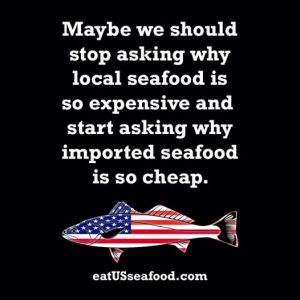 Federal fishery managers denied a proposal this week to immediately shut down Southern California’s most controversial fishery in the event that wide-mesh gill nets accidentally kill a handful of certain marine mammals or sea turtle species. The swordfish and thresher shark fishery will remain open, even if it kills several whales or sea turtles, the NOAA’s National Marine Fisheries decided. The decision not to institute so-called hard caps on the fishery comes after a public review period initiated last year was extended to discuss the law proposed by the state’s Pacific Fishery Management Council in 2014. For the few dozen fishers who still catch swordfish and thresher sharks off Southern California in deep-water drift gill nets, the decision brought a big sigh of relief. click here to read the story 08:38
Federal fishery managers denied a proposal this week to immediately shut down Southern California’s most controversial fishery in the event that wide-mesh gill nets accidentally kill a handful of certain marine mammals or sea turtle species. The swordfish and thresher shark fishery will remain open, even if it kills several whales or sea turtles, the NOAA’s National Marine Fisheries decided. The decision not to institute so-called hard caps on the fishery comes after a public review period initiated last year was extended to discuss the law proposed by the state’s Pacific Fishery Management Council in 2014. For the few dozen fishers who still catch swordfish and thresher sharks off Southern California in deep-water drift gill nets, the decision brought a big sigh of relief. click here to read the story 08:38
Judge says Butt Out! Environmentalists Can’t Help Defend Fishing Rules
 Three environmental groups cannot join the U.S. government to defend against a challenge to an Obama administration rule requiring seafood companies to report the origin of the fish they sell, a federal judge ruled (click to open). The National Resources Defense Council, the Center for Biological Diversity and Oceana asked the court on March 7 to join the government in defending a suit from a group of fishing companies challenging the seafood traceability rule, which requires companies to disclose on a government form the vessel or collection point of origin for their fish. The companies say the rule will make seafood more expensive. The environmentalists say it is critical to protecting fish populations from illegal fishing. The environmentalists made specific arguments in support of the rule, telling U.S. District Judge Amit Mehta that reversal would affect their daily lives. Lol! affect their daily lives? What lives! click here to read the story 10:07
Three environmental groups cannot join the U.S. government to defend against a challenge to an Obama administration rule requiring seafood companies to report the origin of the fish they sell, a federal judge ruled (click to open). The National Resources Defense Council, the Center for Biological Diversity and Oceana asked the court on March 7 to join the government in defending a suit from a group of fishing companies challenging the seafood traceability rule, which requires companies to disclose on a government form the vessel or collection point of origin for their fish. The companies say the rule will make seafood more expensive. The environmentalists say it is critical to protecting fish populations from illegal fishing. The environmentalists made specific arguments in support of the rule, telling U.S. District Judge Amit Mehta that reversal would affect their daily lives. Lol! affect their daily lives? What lives! click here to read the story 10:07
D.B. Pleschner: Study: No correlation between forage fish, predator populations
 On April 9-10, the Pacific Fishery Management Council is meeting in Sacramento to deliberate on anchovy management and decide on 2017 harvest limits for sardine, two prominent west coast forage fish. Extreme environmental groups like Oceana and Pew have plastered social media with allegations that the anchovy population has crashed, sardines are being overfished and fisheries should be curtailed, despite ample evidence to the contrary. Beyond multiple lines of recent evidence that both sardines and anchovy populations are increasing in the ocean, a new study published this week in the journal Fisheries Research finds that the abundance of these and other forage fish species is driven primarily by environmental cycles with little impact from fishing, and well-managed fisheries have a negligible impact on predators — such as larger fish, sea lions and seabirds. This finding flies directly in the face of previous assumptions prominent in a 2012 study commissioned by the Lenfest Ocean Program, funded by the Pew Charitable Trusts, heirs of Sun Oil Company. The Lenfest study concluded that forage fish are twice as valuable when left in the water to be eaten by predators and recommended slashing forage fishery catch rates by 50 to 80 percent. click here to continue reading the article 20:39
On April 9-10, the Pacific Fishery Management Council is meeting in Sacramento to deliberate on anchovy management and decide on 2017 harvest limits for sardine, two prominent west coast forage fish. Extreme environmental groups like Oceana and Pew have plastered social media with allegations that the anchovy population has crashed, sardines are being overfished and fisheries should be curtailed, despite ample evidence to the contrary. Beyond multiple lines of recent evidence that both sardines and anchovy populations are increasing in the ocean, a new study published this week in the journal Fisheries Research finds that the abundance of these and other forage fish species is driven primarily by environmental cycles with little impact from fishing, and well-managed fisheries have a negligible impact on predators — such as larger fish, sea lions and seabirds. This finding flies directly in the face of previous assumptions prominent in a 2012 study commissioned by the Lenfest Ocean Program, funded by the Pew Charitable Trusts, heirs of Sun Oil Company. The Lenfest study concluded that forage fish are twice as valuable when left in the water to be eaten by predators and recommended slashing forage fishery catch rates by 50 to 80 percent. click here to continue reading the article 20:39
Pacific sardine population remains low, says National Marine Fisheries Service
 A study released Friday by the National Marine Fisheries Service puts the northern Pacific sardine population off the West Coast at perilously low levels for the third straight year. The findings, which will be reviewed next month by The Pacific Fishery Management Council, while disheartening for both environmentalists and fishermen, are also disputed by some in the fishing industry who question the method by which these forage fish are counted.,, But Diane Pleschner-Steele, who is the executive director of the California Wetfish Producers Association and represents the majority of boat fishermen and processors who harvest wetfish, said that there’s significant error in the way the sardines are counted and that current government surveys are not surveying adequately the fish that are in the near shore ocean. “Closing the sardine fishery basically closes everything for us, except for squid,” said Pleschner-Steele. “We are seriously considering applying for disaster relief.” read the article here 09:26:19
A study released Friday by the National Marine Fisheries Service puts the northern Pacific sardine population off the West Coast at perilously low levels for the third straight year. The findings, which will be reviewed next month by The Pacific Fishery Management Council, while disheartening for both environmentalists and fishermen, are also disputed by some in the fishing industry who question the method by which these forage fish are counted.,, But Diane Pleschner-Steele, who is the executive director of the California Wetfish Producers Association and represents the majority of boat fishermen and processors who harvest wetfish, said that there’s significant error in the way the sardines are counted and that current government surveys are not surveying adequately the fish that are in the near shore ocean. “Closing the sardine fishery basically closes everything for us, except for squid,” said Pleschner-Steele. “We are seriously considering applying for disaster relief.” read the article here 09:26:19
The idea that “the public” will use Global Fishing Watch seems doubtful
 At John Kerry’s 2014 “Our Ocean” conference, a tuxedoed Leonardo DiCaprio introduced a new technology that promised to end illegal fishing across the globe. Global Fishing Watch boasted real-time monitoring of the world’s ships. This machine-learning spy tool was the result of a collaboration between the conservation advocacy organization Oceana, the satellite surveillance firm SkyTruth, and Google. After it collects and maps vessel location data transmitted from onboard satellite tracking devices, the program organizes all data points on a user-friendly Internet platform. For the first time in history, all fishing activity is recorded–even on the high seas that lie outside national jurisdictions. With Global Fishing Watch’s all-seeing gaze, states can adjudicate crimes to which they were previously blind. But the idea that “the public” will use Global Fishing Watch seems doubtful. The web platform lacks common features without which vigilantes would need a lot of training: pop-ups of helpful tips on what to watch for, alerts to specific hot-spots, built-in reporting mechanisms, or forums for users to share their experiences. Worse, those who the technology could most benefit–local fishers forced to compete with larger illegal ships–often do not have access to a decent Internet connection. If Global Fishing Watch is unlikely to be used by ordinary citizens of the countries most affected by illegal fishing, why is it marketed like a neighborhood watch tool? Read the story here 11:27
At John Kerry’s 2014 “Our Ocean” conference, a tuxedoed Leonardo DiCaprio introduced a new technology that promised to end illegal fishing across the globe. Global Fishing Watch boasted real-time monitoring of the world’s ships. This machine-learning spy tool was the result of a collaboration between the conservation advocacy organization Oceana, the satellite surveillance firm SkyTruth, and Google. After it collects and maps vessel location data transmitted from onboard satellite tracking devices, the program organizes all data points on a user-friendly Internet platform. For the first time in history, all fishing activity is recorded–even on the high seas that lie outside national jurisdictions. With Global Fishing Watch’s all-seeing gaze, states can adjudicate crimes to which they were previously blind. But the idea that “the public” will use Global Fishing Watch seems doubtful. The web platform lacks common features without which vigilantes would need a lot of training: pop-ups of helpful tips on what to watch for, alerts to specific hot-spots, built-in reporting mechanisms, or forums for users to share their experiences. Worse, those who the technology could most benefit–local fishers forced to compete with larger illegal ships–often do not have access to a decent Internet connection. If Global Fishing Watch is unlikely to be used by ordinary citizens of the countries most affected by illegal fishing, why is it marketed like a neighborhood watch tool? Read the story here 11:27
Port of Savannah leads in the export of shark fins
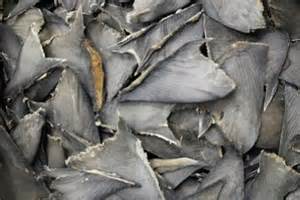 For the last three years the port of Savannah has been the U.S. leader in the export of shark fins, a legal but controversial trade item used to make shark fin soup, a delicacy in parts of Asia. Federal fisheries data show that although no shark fin was exported from Savannah in 2013, the trade here jumped in the following years from 18,444 pounds in 2014 to 25,765 pounds in 2015. That amounts to about $1.2 million in shark fins over the two years. Last year through November the export amounted to 19,171 pounds, valued at $559,845. In each case the shark fins were shipped to Hong Kong. Oceana is now advocating a nationwide ban on the shark fin trade. Not all shark lovers agree. Shark researcher Chris Fischer, a founder of Ocearch and a leader of its expeditions to catch and satellite tag great white sharks, said shutting down trade here will merely create a bigger opportunity for unmanaged fisheries elsewhere. Read the story here 12:33
For the last three years the port of Savannah has been the U.S. leader in the export of shark fins, a legal but controversial trade item used to make shark fin soup, a delicacy in parts of Asia. Federal fisheries data show that although no shark fin was exported from Savannah in 2013, the trade here jumped in the following years from 18,444 pounds in 2014 to 25,765 pounds in 2015. That amounts to about $1.2 million in shark fins over the two years. Last year through November the export amounted to 19,171 pounds, valued at $559,845. In each case the shark fins were shipped to Hong Kong. Oceana is now advocating a nationwide ban on the shark fin trade. Not all shark lovers agree. Shark researcher Chris Fischer, a founder of Ocearch and a leader of its expeditions to catch and satellite tag great white sharks, said shutting down trade here will merely create a bigger opportunity for unmanaged fisheries elsewhere. Read the story here 12:33
South Shore charter fishermen oppose new federal Dusky shark regulations
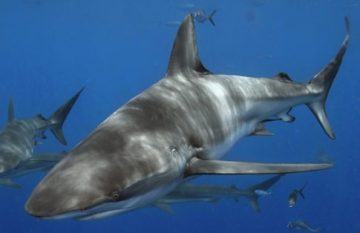 The National Marine Fisheries Service, a federal agency that regulates fishing in U.S. waters, is proposing new rules to protect a vulnerable shark species off the East Coast. Some charter boat captains who fish off the South Shore, however, see a problem with that. They argue that the shark in question – the dusky shark – does not even exist in much of their New England fishing grounds. “There are no duskies north of Cape Cod. None, zero,” Capt. Mike Pierdinock, who sits on the board of the Marshfield-based Stellwagen Bank Charter Boat Association, said last week. His charter boat, “Perseverance,” fishes out of New Bedford. “It’s ridiculous,” he said. “It smells of someone sitting at a desk and not looking at the realities of how things really are.” The National Marine Fishery Service’s proposed regulations are a response to a lawsuit by the environmental advocacy group Oceana. Read the rest of the story here 07:56
The National Marine Fisheries Service, a federal agency that regulates fishing in U.S. waters, is proposing new rules to protect a vulnerable shark species off the East Coast. Some charter boat captains who fish off the South Shore, however, see a problem with that. They argue that the shark in question – the dusky shark – does not even exist in much of their New England fishing grounds. “There are no duskies north of Cape Cod. None, zero,” Capt. Mike Pierdinock, who sits on the board of the Marshfield-based Stellwagen Bank Charter Boat Association, said last week. His charter boat, “Perseverance,” fishes out of New Bedford. “It’s ridiculous,” he said. “It smells of someone sitting at a desk and not looking at the realities of how things really are.” The National Marine Fishery Service’s proposed regulations are a response to a lawsuit by the environmental advocacy group Oceana. Read the rest of the story here 07:56
Shrimp fishermen take issue with proposed TED rule
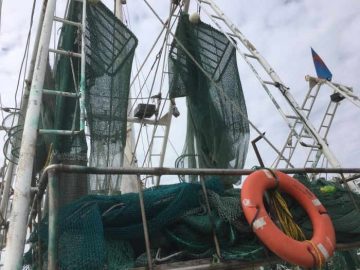 Shrimp boats that fish offshore already use TEDs. Turtle excluder devices use metal grates that prevent turtles from getting caught in the nets. The new rule would apply to skimmer nets, which generally shrimp in shallower waters. “It would affect about half of our fleet, which currently uses skimmer nets. They’ve been having to adhere to tow time restrictions. Now, they’ll have to use TEDs instead,” said Rick Burris, who directs the DMR Shrimp and Crab Bureau. The proposed regulation to expand the use of TEDs is the result of a federal lawsuit filed by a nonprofit conservation group called Oceana, which blames commercial fishermen for killing hundreds of sea turtles each year. “Certainly they’re being singled out. Oceana has had the shrimp industry as a target for a long time. Particularly as it relates to turtles,” said David Veal, executive director of the American Shrimp Processors Association. Veal says the statistics cited by the conservation group are suspect. Video, read the rest here 08:14
Shrimp boats that fish offshore already use TEDs. Turtle excluder devices use metal grates that prevent turtles from getting caught in the nets. The new rule would apply to skimmer nets, which generally shrimp in shallower waters. “It would affect about half of our fleet, which currently uses skimmer nets. They’ve been having to adhere to tow time restrictions. Now, they’ll have to use TEDs instead,” said Rick Burris, who directs the DMR Shrimp and Crab Bureau. The proposed regulation to expand the use of TEDs is the result of a federal lawsuit filed by a nonprofit conservation group called Oceana, which blames commercial fishermen for killing hundreds of sea turtles each year. “Certainly they’re being singled out. Oceana has had the shrimp industry as a target for a long time. Particularly as it relates to turtles,” said David Veal, executive director of the American Shrimp Processors Association. Veal says the statistics cited by the conservation group are suspect. Video, read the rest here 08:14
Plan for Dusky shark doesn’t please Oceana cons
 The federal government isn’t going far enough with a plan to protect a threatened shark that lives off the East Coast and has been decimated by the fin trade, some conservationists argue. The National Marine Fisheries Service is proposing changes to federal fishing rules with the goal of protecting dusky sharks, a large species that is down to about 20 percent of its 1970s population off the East Coast and in the Gulf of Mexico because of commercial fishing for the species that’s now illegal off the U.S. Dusky sharks were long hunted for their meat and oil, as well as their fins, which are used to make soup in traditional Chinese cooking. The fisheries service is proposing a suite of new rules for recreational and commercial fishermen designed to protect the shark, which is sometimes still killed via accidental bycatch by fishermen seeking other species. But conservation group Oceana said the rules aren’t strict enough and leave the sharks vulnerable. Read the story here 11:29
The federal government isn’t going far enough with a plan to protect a threatened shark that lives off the East Coast and has been decimated by the fin trade, some conservationists argue. The National Marine Fisheries Service is proposing changes to federal fishing rules with the goal of protecting dusky sharks, a large species that is down to about 20 percent of its 1970s population off the East Coast and in the Gulf of Mexico because of commercial fishing for the species that’s now illegal off the U.S. Dusky sharks were long hunted for their meat and oil, as well as their fins, which are used to make soup in traditional Chinese cooking. The fisheries service is proposing a suite of new rules for recreational and commercial fishermen designed to protect the shark, which is sometimes still killed via accidental bycatch by fishermen seeking other species. But conservation group Oceana said the rules aren’t strict enough and leave the sharks vulnerable. Read the story here 11:29
NMFS Seeks Public Comment-Proposed Rule to Require Turtle Excluder Device Use for Skimmer Trawls, Pusher-Head Trawls, and Wing Nets (Butterfly Trawls)
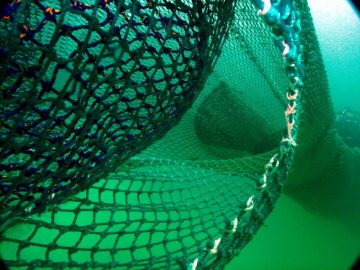 More shrimp fishermen would have to use nets equipped with turtle escape hatches, to prevent sea turtle deaths, under proposed new federal rules. The National Marine Fisheries Service wants to require more shrimp fishermen to use “turtle excluder devices.” The devices are metal grates that allow turtles to escape the boats’ nets. The fisheries service announced the proposed rules Thursday. They will be subject to a public comment process through mid-February. Thursday was the deadline for the federal government to propose regulations to protect turtles under a settlement with the conservation nonprofit Oceana. Oceana sued the government in April 2015, arguing that government estimates indicate that more than 500,000 sea turtles get caught in shrimp nets each year, and more than 53,000 of them die. Link NMFS Seeks Public Comment for Proposed Rule Click here 11:39
More shrimp fishermen would have to use nets equipped with turtle escape hatches, to prevent sea turtle deaths, under proposed new federal rules. The National Marine Fisheries Service wants to require more shrimp fishermen to use “turtle excluder devices.” The devices are metal grates that allow turtles to escape the boats’ nets. The fisheries service announced the proposed rules Thursday. They will be subject to a public comment process through mid-February. Thursday was the deadline for the federal government to propose regulations to protect turtles under a settlement with the conservation nonprofit Oceana. Oceana sued the government in April 2015, arguing that government estimates indicate that more than 500,000 sea turtles get caught in shrimp nets each year, and more than 53,000 of them die. Link NMFS Seeks Public Comment for Proposed Rule Click here 11:39






